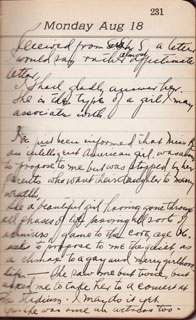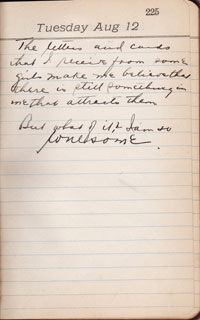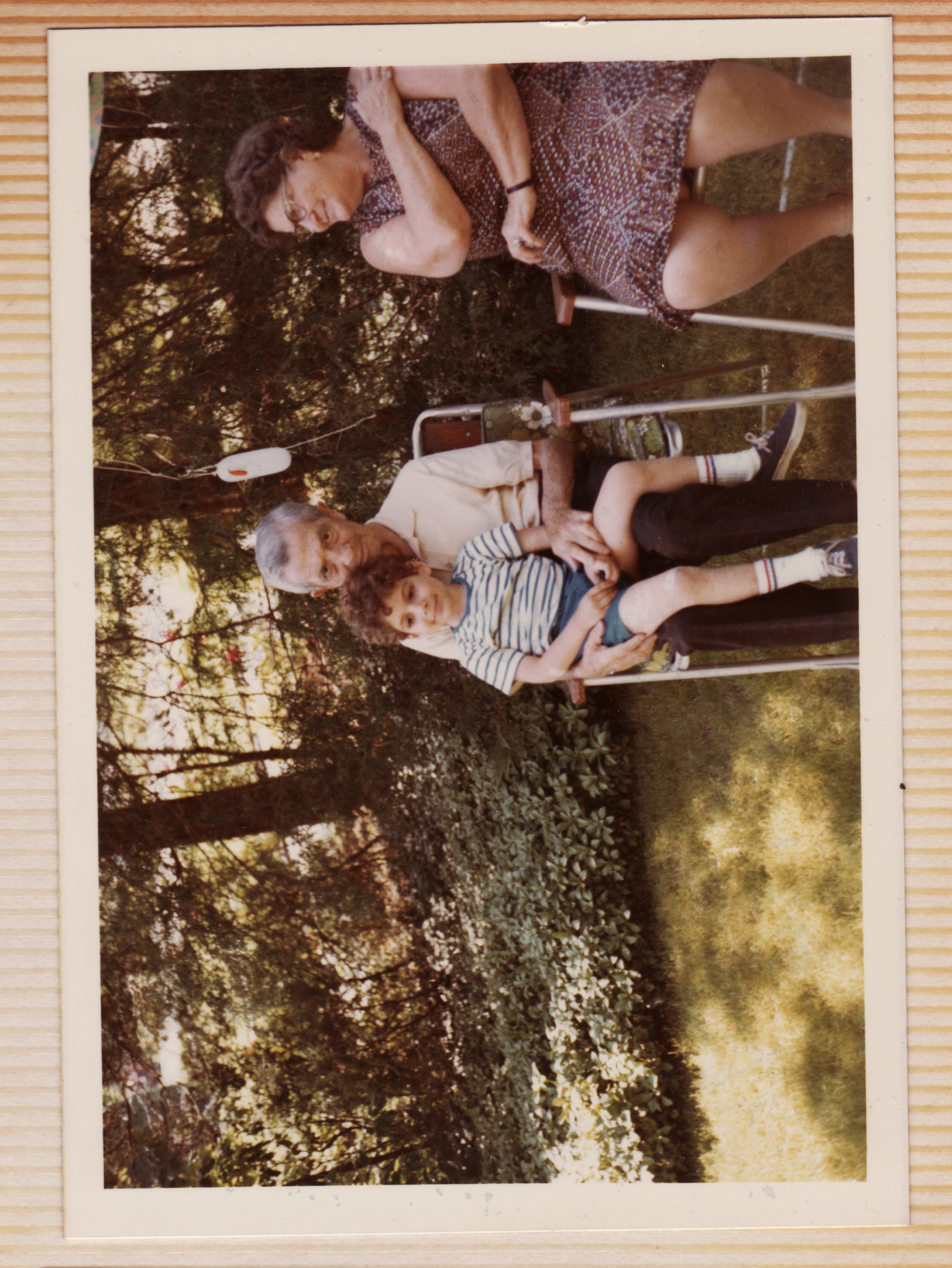
Received from [?] S. a letter
I would say rather [almost] affectionate
letter.
I shall gladly answer her.
She is the type of a girl I may
associate with.
I’ve just been informed that Miss R.
an intelligent American girl, was about
to propose to me but was stopped by her
parents who want their daughter to marry
wealth.
She a beautiful girl having gone through
all phases of life having all sorts of
admirers, game to the core, age 26.
seeks to propose to me the quiet, as
a climax to a gay and merry girlhood
life. — She saw me but twice, but
asked me to take her to a concert at
the Stadium. I may do it yet.
Yes. She was once an actress too.
—————–
Matt’s Notes
I can’t make out the name of the woman who surprised Papa with her interest in him, but it looks something like “Sarah”:

I also can’t figure out from Papa’s tone whether he’s disappointed or simply surprised by news of “Miss R’s” thwarted proposal, but his discussion of it does reveal a few interesting details about Papa’s world. He refers to Miss R. as an “American girl,” which is the first time he’s used this phrase in his diary and no doubt means she was born in America and was more assimilated than he. I’m not sure if he therefore thought of her as part of a higher, more genteel social class, but her parents certainly did.
I also find it odd that a woman we’ver never heard of before planned to propose to Papa but I suppose my understanding of the word “propose” is quite different than Papa and Miss R.’s. Papa must have met her through a marriage broker and forgotten about her with the faceless prospects he described, or rather found too uninspiring to describe, back in early August. By “proposing” to him, she probably would have indicated, through the marriage broker, her willingness to marry him if he were amenable. I imagine the marriage broker delivered the news of her sentiments and of her family’s disapproval to see if Papa was willing to check her out again and, perhaps, try to win her family over.
Despite his description of her qualifications, I don’t think Papa was very excited about her. He could be very hard on himself about his lack of money and social standing when he was really interested in a woman who he felt was too good for him, but it doesn’t seem to bother him here. Also, news of Miss R.’s near-proposal doesn’t disappoint him nearly as much as his dramatic encounter back in January with “Tillie,” who sent him into a days-long tailspin when she confessed her love for him even though she was engaged to someone else.
In any event, the “concert at the Stadium” Papa planned to take Miss R. to was the August 20th performance of the New York Philharmonic at City College Stadium (a.k.a. Lewisohn Stadium, formerly located at 138th Street and Amsterdam Avenue). This was 1924’s final installment of the popular “Stadium concerts” summer music series, which was introduced in 1918 (when soldiers and sailors got in free) and continued until the mid-1960’s when Lewisohn Stadium was razed to accommodate City College’s expansion plans.
————
New York Times References:


 ?
? ?
?





